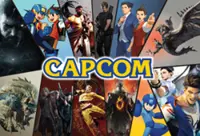Sometimes companies take a risk and release products they know are going to be somewhat controversial, or at least polarising – Tesla’s ugly/iconic/imaginative/insane Cybertruck may be a perfect example. Sometimes companies release a product or service that later finds unexpected disfavor among consumers.
But this month, one video game developer company, Ubisoft, released a title that it expected to be so divisive that the company built up an entire team dedicated to fending off online harassment of its staff, even before the software went on sale.
Ubisoft, which is headquartered in France but has developer offices around the world, including four in the US, released a game called Assassin’s Creed Shadows last week. It’s the latest in an incredibly successful lineup of action-adventure games with a historical bent and estimated sales of some 200 million copies by late 2022, bringing in US$4bil (RM17.75bil) in revenue over the last decade. It’s one of the world’s most successful video games ever.
But Shadows, set in feudal Japan, has been plagued by controversies, including allegations of historical inaccuracies built into the game’s plot and what games news site Polygon calls a “flub” where Chinese subtitles were accidentally used in one of the game’s promotional videos – prompting Ubisoft to issue an apology to “our Japanese players”. Now game development platform 80.lv reports that Ubisoft was so worried about a potential public backlash when the game is launched that it set up a complicated plan to mitigate damage.
In an interview on French media outlet BFMTV, an anonymous Ubisoft employee said the company had an “anti-online harassment plan” ready, including people monitoring social media networks to spot incoming threats and harassment. If such bad behaviour does occur, there’s also psychological and legal support ready for any affected employees.
Ubisoft is so worried that it’s even instructed its developers to avoid mentioning where they work on their social media accounts. The employee also claimed that the company’s lawyers are ready to file complaints against individuals in the event of “confirmed harassment situations”.
All of this may strike you as somewhat extraordinary, and a niche issue that has no particular relevance to you or your company. But the thing is, Ubisoft’s leadership is likely remembering the dramatic, chaotic and broadly condemned “Gamergate” fiasco that unfolded in 2014 and 2015. This so-called “movement” was a loosely organised harassment campaign that targeted mainly female game developers and writers at certain news outlets, resulting in “doxxing” of some developers’ personal information and rising to threats of sexual violence and murder.
The complex, mostly online campaign was purportedly about defending gamers and games themselves from progressive or liberal ideologies, but was eventually closely linked to alt-right political groups, and, as the Guardian newspaper suggests, “presaged the tactics of the Trump-loving far right movement.”
Since then, Elon Musk has taken over Twitter, one platform used to spread Gamergate misinformation and threats, and under his freewheeling, right-leaning interpretation of free speech the platform’s atmosphere has unravelled dramatically – so much so that key advertisers publicly withdrew ads from the newly-branded X in protest.
We live in contentious times, and the ability to anonymously spread information on social media platforms enables plenty of unpleasant criticism as well as some extraordinary benefits. Ubisoft could be rightfully praised for preparing to defend its workforce against any incoming hostility: this represents some solid employee support from a leadership team that could easily have decided to just weather the storm, or left its staff hung out to dry.
Critics, on the other hand, could suggest that maybe Ubisoft should have bent more to accommodate criticism of the game and redesigned its controversial parts, and, as 80.lv points out, could also argue that Ubisoft’s legal threats may constitute an intimidation tactic against anyone who speaks out against the game.
In a statement to games news site PCGamesN, an Ubisoft spokesperson said “Our stance has always been that team members’ social media channels are their own. Our top priority is the safety of our employees, including online, which is why, as a standard practice across Ubisoft, we offer guidance on navigating social media, digital safety, and support for team members’ well-being. We also share resources to help prevent and protect against online harassment, something our teams have unfortunately faced.”
This neither confirms nor denies the existence of a new push to combat harassment, but it does show the company to be forward-thinking. In an era when even the profession of coding itself is under threat from ever more sophisticated AI tools, the games company’s defensive plan sends a strong message that its workforce is a team, and a valuable asset that is worth defending.
Should your company find itself facing vehement public backlash over a controversial product, policy change or other act, you could learn a lesson or two from Ubisoft. At least from this new version of the company, and on this one matter: Ubisoft is also in the news because three former top executives recently went on trial for allegedly psychologically and sexually harassing staff members. – Inc./Tribune News Service










































